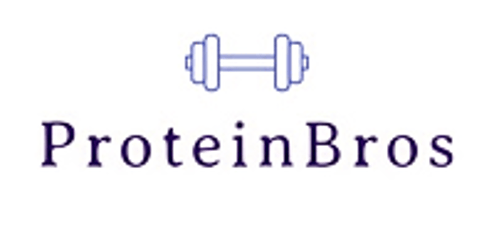
Are supplements safe to take daily? Understanding long-term effects and proper usage
Supplements have become increasingly popular as people seek to boost their health and well-being. Many individuals incorporate these products into their daily routines, raising questions about their safety for long-term use.
1/25/20257 min read


Supplements have become increasingly popular as people seek to boost their health and well-being. Many individuals incorporate these products into their daily routines, raising questions about their safety for long-term use.
The safety of taking supplements daily depends on various factors, including the specific supplement, dosage, and individual health conditions. While many supplements are generally safe when used as directed, some can pose risks if taken in excess or interacted with certain medications.
Before starting any supplement regimen, it's advisable to consult with a healthcare professional. They can assess your individual needs and potential risks, ensuring that supplements complement rather than compromise your health. Regular check-ups and blood tests can help monitor the effects of long-term supplement use on your body.
Understanding Dietary Supplements
Dietary supplements come in various forms and serve different purposes. They aim to provide nutrients that may be lacking in a person's diet.
Definition and Types
Dietary supplements are products intended to supplement the diet. They contain one or more dietary ingredients, such as vitamins, minerals, herbs, amino acids, or enzymes. These supplements come in various forms, including tablets, capsules, powders, and liquids.
Common types of dietary supplements include:
Regulation and Quality Assurance
The U.S. Food and Drug Administration (FDA) regulates dietary supplements under a different set of regulations than those covering conventional foods and drug products. Manufacturers are responsible for ensuring the safety of their products before marketing them.
The FDA does not approve dietary supplements for safety and effectiveness before they reach the market. Instead, the agency takes action against unsafe products after they are available to consumers.
Third-party organizations, such as NSF International and USP, offer quality certification programs for dietary supplements. These certifications help ensure that products contain the ingredients listed on the label and are free from harmful contaminants.
Popular Supplements and Their Purposes
Many people take supplements to support various aspects of their health. Some popular supplements and their intended purposes include:
Vitamin D: Supports bone health and immune function
Fish oil: Promotes heart and brain health
Calcium: Strengthens bones and teeth
Probiotics: Support digestive health and immune function
Vitamin B12: Aids in red blood cell formation and neurological function
It's important to note that while supplements can be beneficial, they are not intended to replace a balanced diet. Consulting with a healthcare professional before starting any supplement regimen is advisable.
Safety Profile of Supplements
Dietary supplements have varying safety profiles depending on their ingredients, dosage, and individual factors. Proper usage and awareness of potential risks are crucial for consumers.
Common Concerns and Misconceptions
Many people believe all supplements are safe because they are "natural." This assumption is incorrect. Natural does not always mean safe or effective. Some supplements can cause adverse effects or interact with medications.
Another misconception is that more is better. Taking excessive doses of vitamins or minerals can be harmful. For example, too much vitamin A can cause headaches and liver damage.
Some consumers think supplements are strictly regulated like drugs. In reality, the FDA regulates supplements as foods, not medications. This means less oversight in manufacturing and quality control.
Potential Side Effects and Interactions
Supplements can cause various side effects, ranging from mild to severe. Common issues include:
Digestive problems (nausea, diarrhea, constipation)
Headaches
Allergic reactions
Sleep disturbances
Interactions with medications are a significant concern. For instance, St. John's Wort can reduce the effectiveness of birth control pills and some HIV medications.
Some supplements may interfere with medical tests or surgical procedures. Vitamin K can alter blood clotting, while ginkgo biloba may increase bleeding risk during surgery.
High-Risk Groups and Precautions
Certain groups face higher risks when taking supplements:
Pregnant and breastfeeding women
Children and adolescents
Older adults
People with chronic health conditions
Individuals taking multiple medications
These groups should consult healthcare providers before starting any supplement regimen. Specific precautions include:
Avoiding mega doses of vitamins and minerals
Checking for potential drug interactions
Being cautious with herbal supplements, especially those affecting hormone levels
It's essential to purchase supplements from reputable sources and look for third-party testing certifications. Always inform healthcare providers about supplement use to ensure comprehensive care.
Evaluating the Necessity of Supplements
Determining whether supplements are needed requires assessing individual nutritional status, health goals, and medical advice. This process helps ensure that supplementation addresses specific needs effectively and safely.
Nutritional Gaps and Diet Assessment
A comprehensive evaluation of one's diet is crucial in identifying potential nutrient deficiencies. Keeping a food diary for a week can provide insights into eating habits and nutrient intake.
Blood tests can reveal specific nutritional deficiencies. These tests help pinpoint areas where supplementation might be beneficial.
Certain diets may increase the risk of nutrient gaps. For example:
Vegetarian and vegan diets: May lack vitamin B12, iron, and omega-3 fatty acids
Gluten-free diets: Potentially low in fiber, B vitamins, and minerals
Low-calorie diets: Might not provide sufficient vitamins and minerals
Individual Health Objectives
Personal health goals play a significant role in determining supplement needs. Different objectives may require specific nutritional support:
Athletic performance: Protein, creatine, or electrolytes
Heart health: Omega-3 fatty acids or CoQ10
Pregnancy: Folic acid and prenatal vitamins
Age and life stage also influence supplement requirements. For instance, older adults may need additional vitamin B12 and vitamin D.
Existing health conditions can affect nutrient absorption or increase the need for certain supplements. Examples include:
Condition Potential Supplement Need Osteoporosis Calcium, vitamin A, Iron, vitamin B12, digestive enzymes
Consulting Healthcare Professionals
Seeking advice from healthcare providers is essential before starting any supplement regimen. Doctors can assess individual health status and recommend appropriate supplements based on medical history and current medications.
Nutritionists or registered dietitians can provide personalized dietary advice. They may suggest food-based solutions before recommending supplements.
Regular check-ups and blood tests help monitor the effectiveness of supplements. This allows for adjustments to dosage or type of supplement as needed.
Healthcare professionals can also advise on potential interactions between supplements and medications. Some supplements may interfere with prescription drugs or affect medical test results.
Daily Intake Recommendations
Proper dosage is crucial for the safe and effective use of supplements. Following established guidelines can help maximize benefits while minimizing potential risks.
Recommended Dietary Allowances (RDAs)
RDAs provide guidance on the daily nutrient intake sufficient for most healthy individuals. These values are set by health authorities based on scientific evidence.
For vitamins and minerals, RDAs vary by age, sex, and life stage. For example, the RDA for vitamin C is 90 mg for adult males and 75 mg for adult females.
Some supplements, like herbal products, may not have established RDAs. In these cases, following manufacturer recommendations or consulting a healthcare professional is advisable.
Upper Intake Levels and Overconsumption Risks
Upper Intake Levels (ULs) indicate the maximum daily amount of a nutrient unlikely to cause adverse health effects. Exceeding ULs can lead to toxicity or other health issues.
For instance, the UL for vitamin D is 4,000 IU per day for adults. Consuming more than this amount may cause calcium buildup in the blood, potentially damaging kidneys and heart.
Some nutrients, like iron, have lower ULs and narrower safe ranges. Overconsumption of iron can lead to organ damage and other serious health problems.
Tailoring Intake to Individual Needs
Individual supplement needs can vary based on factors such as:
Age and gender
Health conditions
Medications
Diet and lifestyle
Pregnancy or breastfeeding status
A healthcare provider can help determine appropriate supplement dosages based on these factors. They may recommend blood tests to identify specific nutrient deficiencies.
Some individuals may require higher doses of certain nutrients. For example, vegans might need more vitamin B12, while those with iron-deficiency anemia may need iron supplements.
Regular reassessment of supplement needs is important, as requirements can change over time due to factors like aging or changes in health status.
Research and Evidence Base
Scientific studies provide valuable insights into the safety and efficacy of daily supplement use. Rigorous research methods help evaluate potential benefits and risks.
Clinical Trials and Study Findings
Randomized controlled trials offer the most reliable evidence on supplement safety. These studies compare supplement users to control groups taking placebos. Many trials have found common vitamins and minerals to be safe when taken at recommended doses.
Some studies have linked high doses of certain supplements to adverse effects. For example, excess vitamin A may increase fracture risk in older adults. Large-scale trials like the SELECT study have investigated potential cancer prevention benefits of supplements.
Meta-Analyses and Systematic Reviews
Meta-analyses combine data from multiple studies to draw broader conclusions. A 2013 review of 27 trials found no increased mortality risk from multivitamin use. Systematic reviews assess the overall body of evidence on supplement safety.
The Cochrane Collaboration conducts rigorous reviews on dietary supplements. Their analyses have found insufficient evidence to recommend many supplements for disease prevention. Reviews also highlight the need for more long-term safety data on some supplements.
Alternatives to Supplements
Many people can obtain necessary nutrients through natural methods without relying on supplements. These approaches focus on whole foods and lifestyle changes to support overall health and wellness.
Whole Foods and Nutrient-Rich Diets
A balanced diet incorporating diverse, nutrient-dense foods can provide essential vitamins and minerals. Fruits and vegetables offer a wide range of vitamins, minerals, and antioxidants. Leafy greens like spinach and kale are rich in iron, calcium, and vitamins A and C.
Whole grains provide B vitamins and fiber. Lean meats, fish, and legumes offer protein, iron, and zinc. Nuts and seeds contain healthy fats, vitamin E, and minerals.
Fermented foods like yogurt and sauerkraut support gut health with probiotics. Herbs and spices add flavor and beneficial compounds to meals.
Lifestyle Changes and Natural Sources
Sunlight exposure helps the body produce vitamin D naturally. Regular outdoor activities can boost vitamin D levels without supplements.
Exercise improves nutrient absorption and utilization in the body. Physical activity also enhances overall health and well-being.
Adequate sleep supports hormone balance and immune function. Quality rest is crucial for the body's natural repair processes.
Stress reduction techniques like meditation or yoga can improve nutrient absorption. Managing stress levels positively impacts overall health.
Hydration with water and herbal teas supports bodily functions. Proper fluid intake aids in nutrient transport and cellular processes.
Monitoring and Adjusting Supplement Use
Regular evaluation of supplement intake is crucial for maintaining safety and effectiveness. Proper monitoring helps identify any potential issues or benefits, allowing for timely adjustments.
Tracking Health Outcomes
Keeping a detailed supplement journal can be invaluable. Record daily intake, dosages, and any noticeable effects or changes in health status.
Regular health check-ups and blood tests provide objective data on nutrient levels and overall health markers. These results can guide supplement adjustments.
Pay attention to energy levels, sleep quality, and mood changes. These factors often reflect the impact of supplementation on overall well-being.
Monitor for any adverse reactions such as digestive issues, headaches, or skin changes. Discontinue use and consult a healthcare provider if concerning symptoms arise.
When to Review and Modify Supplementation
Review supplement regimens every 3-6 months or when experiencing significant life changes. This includes alterations in diet, exercise habits, or health status.
Adjust supplements based on seasonal variations. For example, vitamin D requirements may increase during winter months with less sunlight exposure.
Consult a healthcare professional before making major changes to supplement routines. They can provide personalized advice based on individual health needs and goals.
Consider modifying supplement intake during periods of increased stress, illness, or recovery from surgery. These situations may require different nutritional support.
Reassess supplement needs after achieving specific health goals. Maintenance doses may differ from initial therapeutic doses.
Additional info
Social media coming soon!
Contact us
Newsletter coming soon!
© 2024. All rights reserved.
